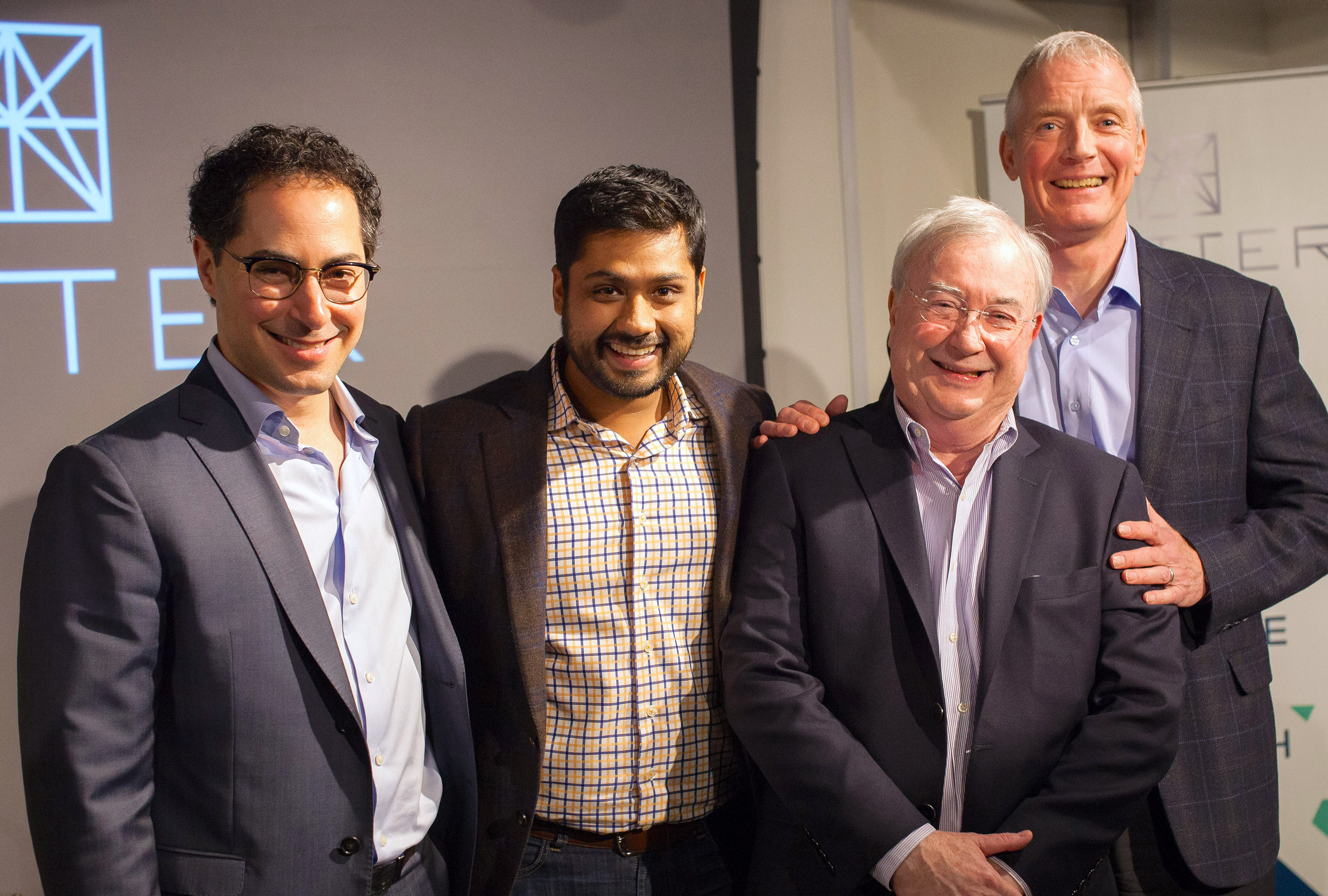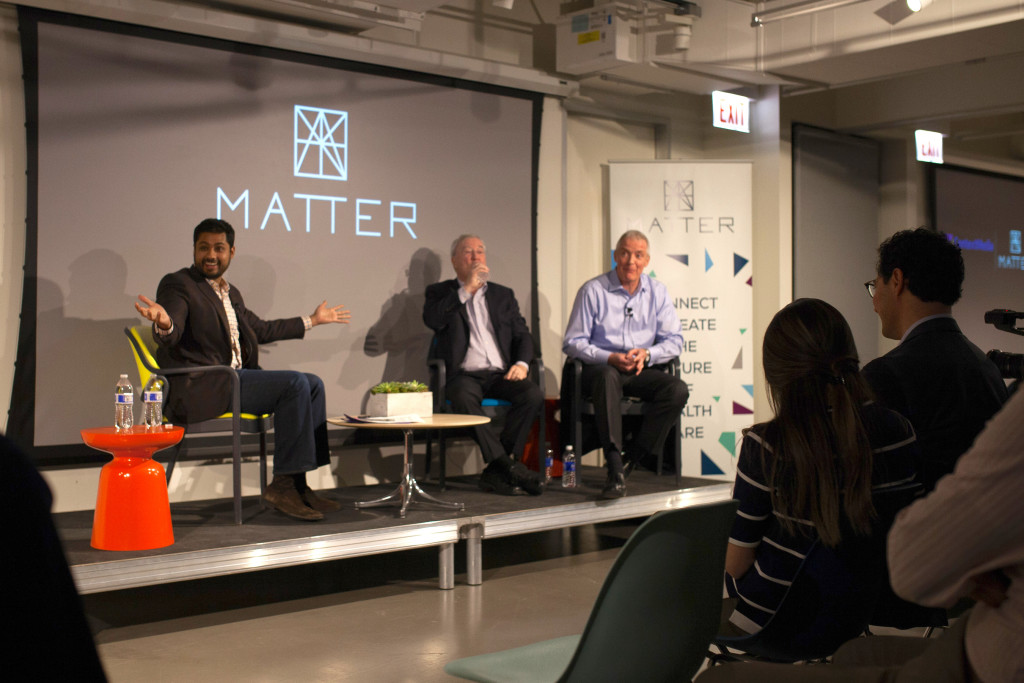Tales from the Trenches: Norbert Riedel and Joe Moskal

Last month, MATTER’s Tales from the Trenches series welcomed Norbert Riedel and Joe Moskal, the leaders of Evanston-based Naurex, which was recently acquired by global healthcare giant Allergan for $560 million. ContextMedia CEO Rishi Shah interviewed the pair about their successful (if oddly coupled) partnership. Watch the full video of the event or read our recap below.
In 1983, Joe Moskal, a neuroscience PhD, built a nonprofit research institute dedicated to studying depression and other conditions of the central nervous system. At the time, in many circles, depression wasn’t accepted as a true medical condition, so Moskal had to fight against the stigma and the largely-held belief that his work wasn’t valid.
Moskal founded The Falk Center for Molecular Therapeutics at Northwestern University where he developed drugs to treat conditions related to the central nervous system including depression, surviving on grant funding while maintaining close ties with the private sector. While running the Falk Center, he met Norbert Riedel.
Riedel was Baxter’s chief scientific officer and head of Baxter Ventures where he scouted academic labs for potentially disruptive technologies to fund. After funding a few of Moskal’s proposals in the mid-2000s, Baxter Ventures led Naurex’s Series-B funding round in 2012, and Riedel joined Naurex’s board. In 2013, Riedel stepped down as Baxter’s chief scientific officer and became Naurex’s CEO the following year.

During the conversation, Riedel shared his view that Baxter could never be as innovative or entrepreneurial as he wanted it to be without working closely with universities. Moskal chalks up his commercial success to his research’s independence from Northwestern – something he was only able to maintain with funding from Baxter. Had he only focused on developing peer-reviewed research and obtaining government grants, he would not have been able to shape his research into commercially viable drugs affecting the CNS.
Together, Riedel and Moskal were able to develop treatments for conditions affecting the central nervous system. One such medicine is rapastinel, an adjunctive therapy for treatment-resistant depression. Their clinical trials showed efficacy a mere two hours after a single dose was administered to a patient, with relief lasting up to a week. The relief was twice as robust after one dose than after four weeks of treatment with selective serotonin reuptake inhibitors, or SSRIs, the most widely-prescribed treatment for depression in the US. Not only that, but rapastinel didn’t have a single serious side effect after a large number of clinical trials. The FDA granted the drug Fast Track designation in 2014 and Breakthrough Therapy designation in 2016.
Allergan acquired the Naurex name and the company’s lead compounds for depression, but the entire Naurex team reconstituted under a new company name, Aptinyx, and are currently working on using the same platform to develop breakthrough therapies for neuropathic pain.
In giving advice for building a biopharmaceutical business from the ground up, Riedel and especially Moskal stressed the incremental nature of entrepreneurship. They raised numerous rounds of funding over many years before developing the company to a point where it was an attractive acquisition target. He emphasized “taking small swings,” claiming that “the name of the game is to stay in the game.”
The pair shared words of wisdom about the importance of failure: the sooner entrepreneurs fail, the sooner they stop working on bad ideas. Building a network was crucial to Moskal, who mentioned mentors and colleagues who provided invaluable feedback throughout his career. With regards to the healthcare industry, both hammered home the importance of staying focused on the patient. If you have a unique, differentiated product that eases real patient pain, the money will follow. Just ask Joe Moskal.

